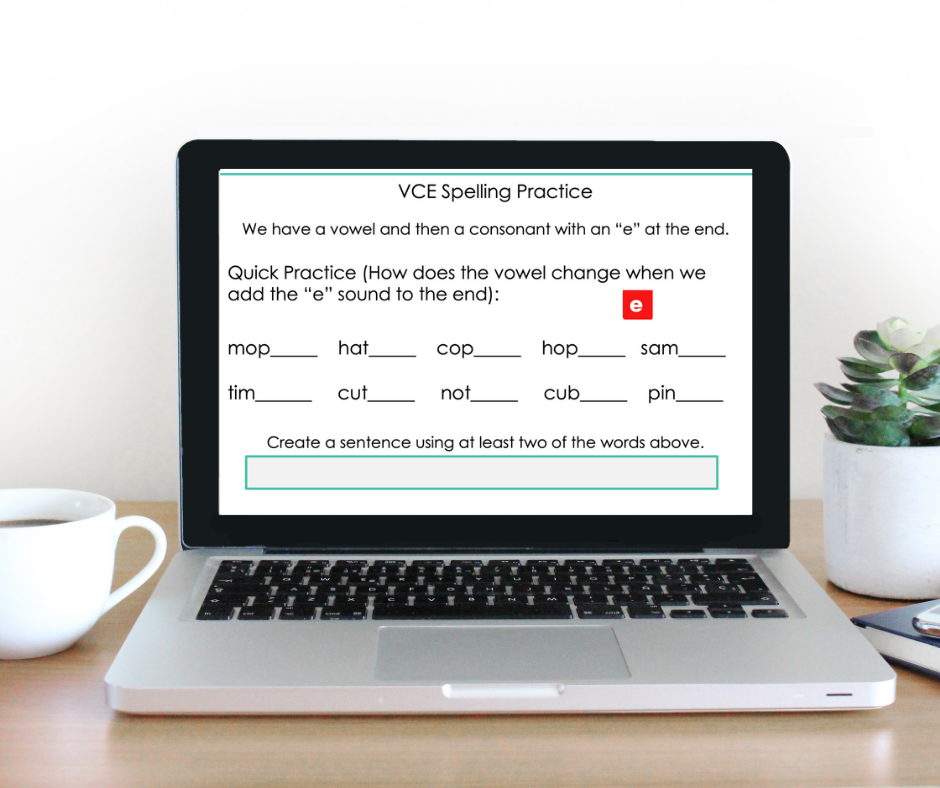Magic E Syllables - The Reading and Spelling Rules That Nobody Taught You
We are back with our second syllable type in our series of The Reading & Spelling Rules Nobody Taught You. Our second syllable type is…
VCE Syllables or Vowel Consonant E Syllables
Perhaps, if I told you it was also called the Magic E Syllable, would it sound familiar? Today, we are going to run through Magic E syllables and a few rules we teach students in this unit!
Most of us were taught about the Magic E. We learned that if there is a letter E at the end of a one-syllable word, the E can jump over (or under) one consonant and give all of its power to the other vowel. This makes the E stay silent and the other vowel says its name or long sound. If you want to read more about VCE or Magic E, click here!
For example, let’s start by building a closed syllable, “hop.” Closed syllables always have one vowel closed in by a consonant and the vowel is stuck, making its short sound. However, if we add a Magic E at the end of the word, it can jump over the one consonant to make the vowel say its name or long sound. The E says nothing. In this case, “hop” would become “hope”.
When “S” gets stuck between two vowels - it sounds like “Z!”
Did you know that when an S gets stuck between two vowels it says /z/? Think about words like rose, nose, muse, wise, use, and these. In each of these Magic E words, the S is stuck between two vowels and is making a /z/ sound.
No English Word Ends in V
Here’s another favorite of mine: No English word ends in the letter V, so we need an E to hold it up. Sometimes the E still jumps over to make the vowel long and sometimes it uses all of its power to hold up V, so the vowel stays short.
Here are some words that end in the V sound, but not the letter V: save, shave, chive, brave, live, give, and have. Notice how some of the vowels are long and some of the vowels remain short.
Schwa Sounds - OVE gets lazy!
You will also see endings like -ove. Here, the O gets lazy and makes what we call the schwa sound. This happens in words like love, dove, glove, above, and shove.
If you are looking for resources to help instruct students on VCE, check out our VCE Bundle on Teachers Pay Teachers! >>Click Here<< to check it out!
If you are looking for more materials to use in your phonics instruction and for other activities aligned with the Science of Reading, check out the 5CCL Activity Library. Click below to learn more.


